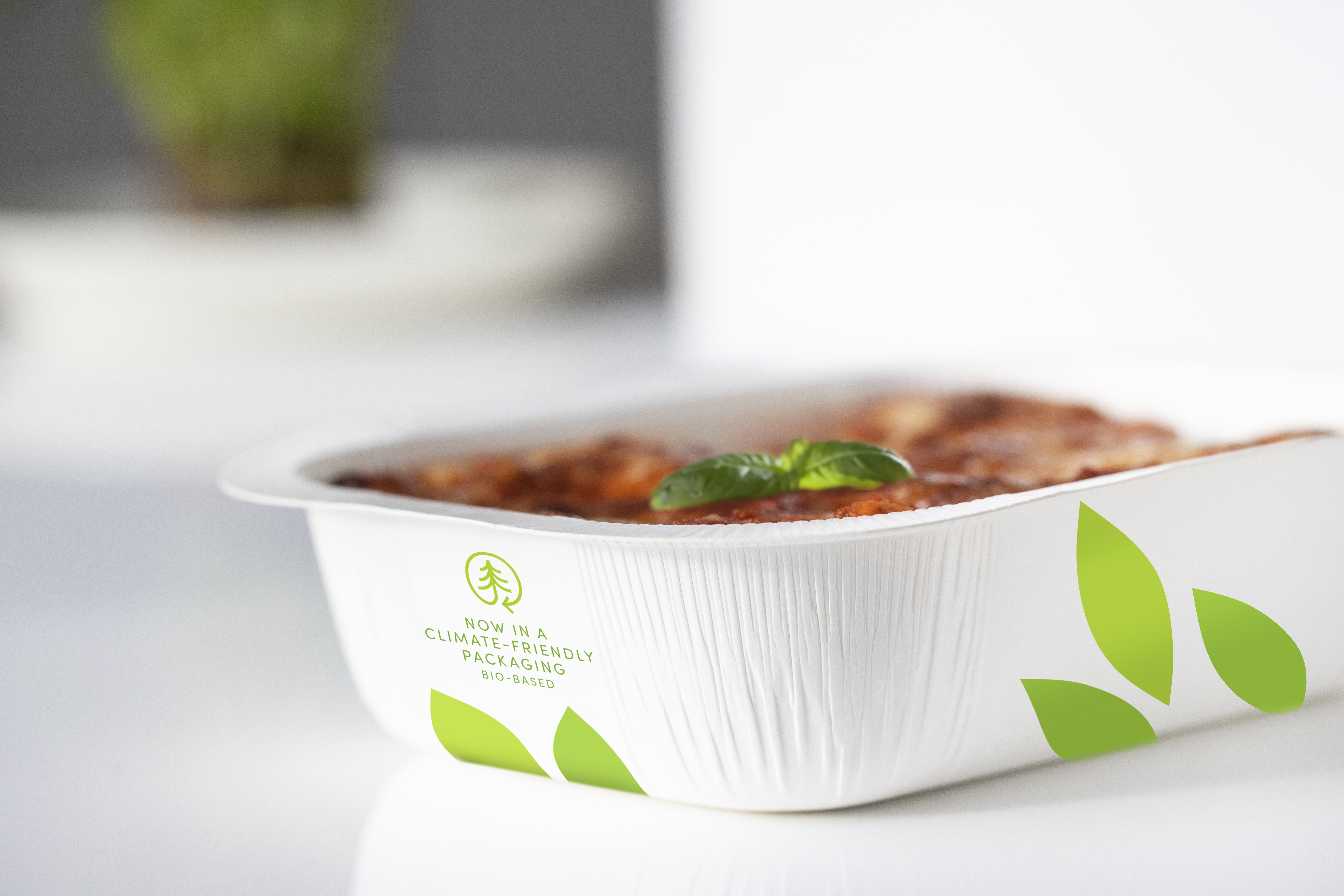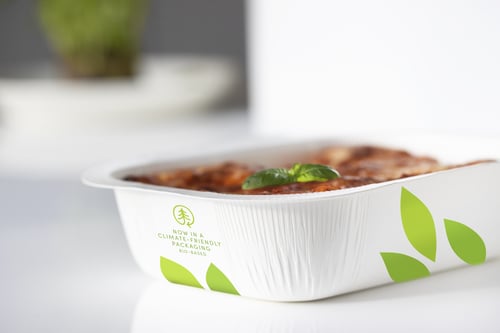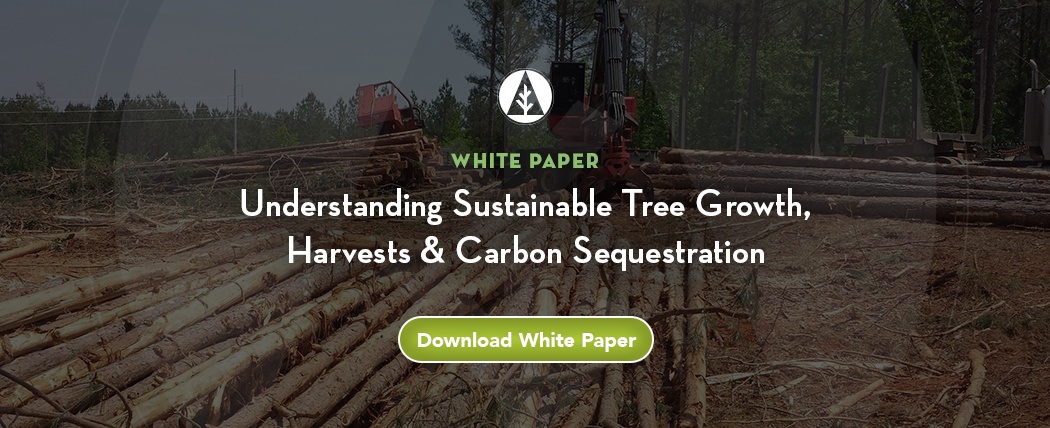
The push for a more sustainable global economy continues to drive innovations in nearly every business sector across the globe, and the forest industry is helping to lead the way. We wanted to share a few of the most exciting developments in this roundup of recent sustainability-oriented projects that are making headlines.
Reports Call for Climate-Smart Restoration of America’s National Forests
With unprecedented heat waves and deepening droughts setting the stage for another devastating wildfire season, a trio of new reports call for climate-smart and ecologically appropriate restoration of America’s national forests. The result of a collaboration among three of the nation’s leading conservation organizations — the National Wildlife Federation, The Nature Conservancy, and American Forests — the reports stress the need to spur an increase in the pace, scale, and quality of forest restoration and to help ensure the sustainability and resilience of these treasured public lands in the face of rapid climate change.
The U.S. Forest Service estimates that up to 80 million acres of national forest lands are in need of restoration to reduce dangerous fuel loads and fire risk and to improve the ecological health of these forest systems. As climate-driven changes accelerate — including warmer temperatures, more severe drought, increasingly erratic rainfall, and stronger storms — forest restoration will need to anticipate and manage for future climatic conditions.
Stora Enso Delivers New Low-Carbon Material for Microwavable Ready-Meal Trays
Trayforma by Stora Enso is a new wood fiber-based material composition designed for microwavable food tray packaging. The renewable material is free of PET, has a very low share of PP and a lower carbon footprint compared to traditional meal tray products. The material contains up to 95% wood fibers, making it widely recyclable in most existing carton packaging recycling schemes.
By changing to recyclable, low-carbon trays, brand owners and retailers selling microwave ready-meals can act on circular economy commitments.

Ahlstrom-Munksjö Launches PawPrint™, a Full Range of Pet Food Packaging Solutions
Ahlstrom-Munksjö’s PawPrint™ Pet Food Packaging Papers offer sustainable alternatives for flexible pet food packaging needs. PawPrint™ papers provide pet food brand owners functional yet visually attractive pet food packaging – inside and out- to help them eliminate the need for single-use plastic with a more sustainable alternative.
Ahlstrom-Munksjö has developed several support technologies featured in the PawPrint™ line of packaging papers, from proprietary and BPI® compostable certified grease-resistant FluoroFree® papers to glossy Gervalux™ multiwall papers. PawPrint™ papers come in white, unbleached trulyNatural® papers, and can be converted into several types of end-use packaging structures such as pouches, pinch-bottoms, and SOS (block) bottoms. PawPrint’s supporting technologies can also provide multiple packaging solutions to other types of food applications.
Sappi joins the Circular Bioeconomy Alliance
Sappi, a leading global provider of powerful everyday materials made from wood fiber-based renewable resources, is pleased to announce that it has joined the CBA, a new global movement which places Nature at the heart of the global circular bioeconomy.
The unprecedented scale of environmental and social challenges currently facing humanity calls for commitment, action and partnership at an unprecedented scale. The new economic paradigm of a circular bioeconomy offers much potential to recalibrate our interaction with Nature. Harnessing the power of renewable resources to establish a new balance where we can address climate change, biodiversity loss, and overconsumption while stimulating equitable economic development & well-being.
Boulder County Launches Innovative Pilot to Reduce Packaging Pollution
With support from the U.S. Environmental Protection Agency (EPA), Boulder County, CO has launched a pilot program to decrease environmental impacts associated with food and beverage packaging. The Boulder County Food & Beverage Pollution-Reduced Packaging Pilot will support manufacturers as they transition to pollution-reduced and sustainable packaging formats.
The pilot program is funded by the EPA Source Reduction Assistance grant program. Resource Recycling Systems (RRS), a sustainability and material recovery consulting firm with a location in Boulder, will facilitate the program.
“This program will find ways to reduce food packaging impacts by conserving resources at the start of the manufacturing process through the design of reusable, recycled, recyclable, bio-based, and compostable packaging,” said Tim Broderick, Senior Sustainability Strategist at Boulder County’s Office of Sustainability, Climate Action & Resilience. “With 46% of all manufacturing in Boulder County being attributed to the food and beverage industry, there’s a huge opportunity here to support the creation of closed-loop products. We hope this program helps accelerate the local circular economy.”
Sonoco Expanding Recycling of Iconic Paper Containers in U.S.
Sonoco, one of the most sustainable, global diversified packaging companies, announced it is expanding recovery and recycling of scrap materials from the production of its iconic EnviroCan™ paper containers in the US to be used as raw material at three of its uncoated recycled paperboard mills to produce new paperboard.
According to Elizabeth Rhue, Sonoco’s staff Vice President of Sustainability, Sonoco expects to divert from landfills approximately 3,300 tons of scrap materials annually from four of its US paper container operations in West Chicago, IL, Greenville, WI, Jackson, TN, and Norwalk, CA. This material, which is projected to equal approximately 165 truckloads, will be sent to Sonoco paper mills in Menasha, WI, Newport, TN, and City of Industry, CA, where it will be used as raw material to produce 100 percent recycled paperboard, with up to 85 percent post-consumer fiber.
Carbon Offset Prices Set to Increase Tenfold by 2030
The cost of offsetting corporate carbon emissions is expected to surge tenfold over the next decade as growing numbers of businesses adopt net zero targets, with carbon credit prices tipped to reach between $20 and $50 a metric ton of CO2 by 2030, according to new research.
Carbon offset prices on average stand at just $3-5 per metric ton of CO2 at present, with experts fearing that prices are far below the level required to both unlock significant investment in emissions-mitigation measures, such as carbon removal technologies or large scale nature-based solution projects, and provide companies with an additional financial incentive to reduce their own emissions and avoid the need to purchase offset credits.
But according to the study published by Trove Research and University College London (UCL) late last week, the current surplus of carbon offset credits could be quickly eroded, with demand expected to increase fivefold or even tenfold over the next decade as companies seek to deliver on their net zero emissions pledges. As such, prices could rise to $50 per metric ton by 2030, which researchers said would help to incentivize investment in climate action by encouraging land owners to shift some of their income away from agriculture and towards preserving forests and planting trees.
Banks Join Forces to Create Voluntary Carbon Marketplace
NatWest Group has today joined Canadian bank CIBC, Brazilian bank ITAU and Australian bank NAB to announce plans to launch Project Carbon, a voluntary carbon marketplace - a global first – in our latest bid to tackle climate change.
From August, Corporate customers of NatWest Group and the other banks involved will be able to access transparent information about carbon credits through an open digital record of ownership. The pilot will initially see four banks team up with the aim of using blockchain to create a thriving and transparent global marketplace for carbon offsets with clear and consistent pricing and standards, with more banks expected to join later.





